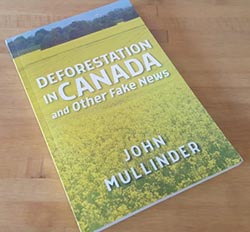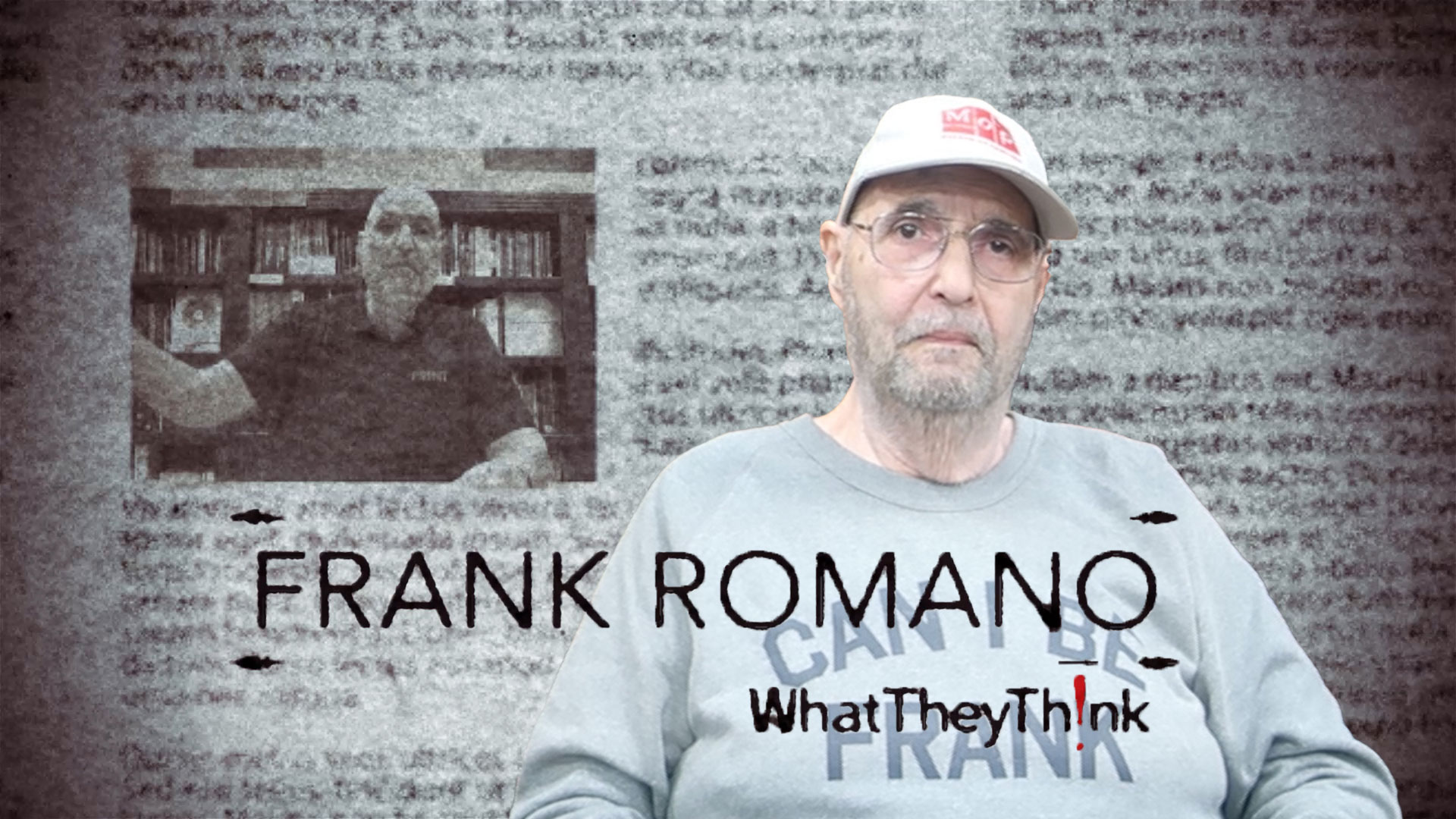Two Sides Featured Prominently in New Book by John Mullinder
Press release from the issuing company
 John Mullinder started his journalistic career in New Zealand before emigrating to Canada in the mid-1980s. Over the past 27 years, Mr. Mullinder has led a national environmental council for the country’s paper packaging industry. Frustrated by encounters with people who knew so little about forestry and paper production but had plenty of opinions about killing and saving trees, John was compelled to write a book called, Deforestation in Canada and Other Fake News.
John Mullinder started his journalistic career in New Zealand before emigrating to Canada in the mid-1980s. Over the past 27 years, Mr. Mullinder has led a national environmental council for the country’s paper packaging industry. Frustrated by encounters with people who knew so little about forestry and paper production but had plenty of opinions about killing and saving trees, John was compelled to write a book called, Deforestation in Canada and Other Fake News.
“Many people believe that cutting down trees is deforestation and the emotional image they associate with this is an ugly clear cut,” states Mr. Mullinder. “I debunk these myths with hard facts, well-documented evidence, references and real images of deforestation.”
Deforestation is often incorrectly defined and associated with the forestry products industry. In reality, deforestation is defined as the permanent destruction of forests to make the land available for other uses. One reason Mr. Mullinder chose to show an agricultural scene on the cover of his book is to point out that the primary causes of deforestation are due to agriculture, oil and gas projects, and urbanization.
Information from Two Sides and Dovetail Partners helped to debunk myths that are key to understanding the value of supporting the forestry and paper industry.
The first is the myth that saving paper saves trees. Although it can seem counterintuitive, research shows that using paper and wood products is an essential component in maintaining forested land.
And the second is that digital has a minimal environmental impact compared to print. Trees are actually a renewable resource and are continuously replenished when managed with sustainable forestry practices. There are raw material, energy, and landfill environmental impacts to consider when using digital devices.
We asked Mr. Mullinder what he thought the biggest challenges were to combat the misinformation around the forestry industry. He believes that the reach and impact of negative visual images and widespread misinformation on social media influences the reader’s perception, especially the younger generation. Although the forest and paper industry has greatly improved its environmental performance over the past 50 years, there is still a great deal of work to be done to combat the distorted information. Mr. Mullinder believes the industry needs to continue to aggressively educate the public through organizations like Two Sides, to establish credibility while telling the strong story about the renewability, sustainability, and recyclability of forestry and paper.
Click here for more information about John Mullinder, or to learn more about his book.
- Inkjet driving insourcing for state in-plants
- Real World AI for the Printing Industry
- Harnessing the Power of Synergy: HP High Speed Inkjet and Indigo Liquid Toner Technologies
- KYOCERA NIXKA INKJET SYSTEMS (KNIS) INTRODUCES BELHARRA, THE NEW WAVE OF PHOTO PRINTERS
- New RISO Printing Unit Offers Easy Integration for Package Printing
- March 2024 Inkjet Installation Roundup
- Inkjet Integrator Profiles: Integrity Industrial Inkjet
- Revisiting the Samba printhead

WhatTheyThink is the official show daily media partner of drupa 2024. More info about drupa programs
© 2024 WhatTheyThink. All Rights Reserved.









Discussion
Join the discussion Sign In or Become a Member, doing so is simple and free